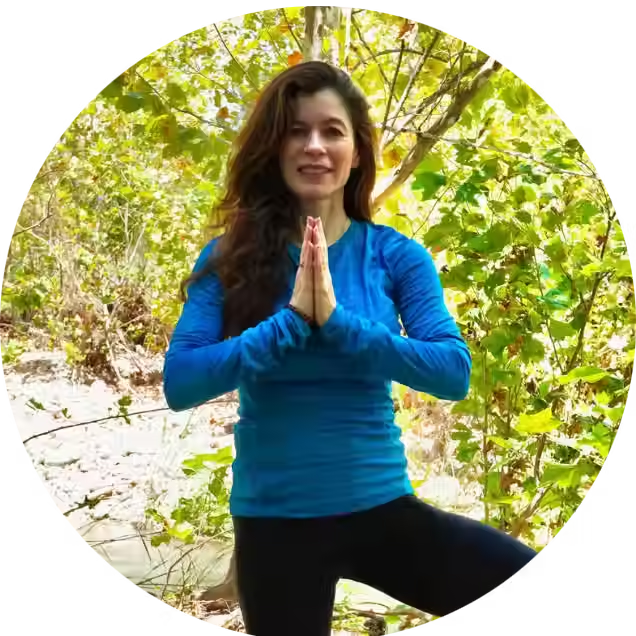Kavod Habriyot: A Reflection on Session 2 of “Receiving the Torah Afresh Everyday”
- Jordan Walker
- Jul 6, 2022
- 4 min read
בס״ד
“God…enables us to return to life after tragedy--not by eradicating all suffering but by giving us the strength and the courage to heal what we can heal.”
--Rabbi Naomi Levy
Hear, O LORD, when I cry aloud;
have mercy on me, answer me.
-- Psalm 27:7
"Because Humans are the image of God they are endowed by their creator with three intrinsic dignities: infinite value, equality, and uniqueness.”
---Rabbi Irving Greenberg, The Jewish Way
“By saying ‘You’ (אתה) a person achieves a revelation of Godliness directly to [them], facing [Adonai]. Then HaShem speaks directly to [them], teaching [them] Torah individually, directly and immediately, also with the term ‘you’ in the second person. When this happens, each person sees and grasps a part of the Torah that HaShem is speaking directly to [them] and teaches [them], which cannot be grasped by anyone else, while another person, in [their] turn, may grasp what the first cannot....”
--Rebbe Yiscah Smith, “Receiving the Torah Afresh Everyday”
This week Rebbe Yiscah continued to elaborate on how Adonai has a unique Torah revelation for each human being. The basis of these lessons lies in her reading of The Piaseczner Rebbe’s (a reflection on the Rebbe’s life and work) teaching on the gift of being able to refer to Adonai as “You”/ ”אתה,” which can bring each person into a one-to-one dynamic with The Divine.
(Examples of this gift lie in such formulations as the blessings offered for all kinds of events and seasons of life: “Blessed are You, God…”)
Toward the closing of the session, Rebbe Yiscah asked everyone to sit and feel whatever this d’var offered to us. While responses ranged from gratitude to comfort to praise—all of which I honor as well—mine was one of grief and the need for repentance/תשובה.
How easy has it been in my life to deny the Divine image in “the other…”
How presumptuous have I have been, both unconsciously and consciously, to assume any right to deny Adonai’s validation of everyone… The Divine’s declaration that every person is worthy of recognition..
Whether such a denial was a response in anger to mistreatment or simply an effort to restore what felt like a threat to my own identity, there is decidedly space in my spiritual journey for returning to the foundation Adonai set in forming all of humanity in the Imago Dei.
As such, our own context informs everything we are and how we receive, and in light of the recent decision by the United States Supreme Court to overturn Roe v. Wade (source), making the criminalization of abortion a harsh reality for women in this country, again, I grieve.
While I am not making a political statement on behalf of Rebbe Yiscah or Applied Jewish Spirituality, the motivation I felt to put words around my own personal grief for what I see as a denial of fundamental human rights for women came out of hearing directly from women I know and women I have read, who must still live in a world that denies them the right to their own bodily autonomy.
Though I cannot and would not call myself a Torah, Hebrew, or Halachic scholar, I have been trying to learn more about what Judaism teaches regarding human rights, as I attempt to discern my own theological response to this devastation. Such seeking lead me to the concept of “Kavod Habriyot (‘Respect for Creation’),” which has been translated and debated across Rabbinic Literature but essentially reads as “human dignity” (source).
I do not find it fruitful to delve too deeply into what I have read here, but I think Rabbi Greenberg’s quote from a Sefaria document on the subject conveys my belief: being created in the image of The Divine, each human has an intrinsic dignity, which is so powerful that even Jewish law can be transgressed in deference to it.
Trying to tie this all together, a fundamental recognition of human dignity is honoring the voice, the distinctive revelation of Adonai, in each person.
The fact that the majority opinion of the Court was made in a 5-4 split about something specifically related to humans with female anatomy, with 4 of the majority having male anatomy, says so much about how society keeps failing to fully recognize and honor the voices (and dignity) of women—whether they be cisgender, trans*, femme-identified, nonbinary and gender non-conforming.
While this matter is far from settled, I mourn with my sisters and challenge myself to hear Adonai’s voice when they are speaking more than ever. This is why I included the verse from the Psalms and the quote from Rabbi Naomi Levy.
Rebbe Yiscah encouraged us to search for Psalms that could convey what may seem untranslatable to others, because art is transcendent (Baruch HaShem). While this particular Psalm is attributed to David—and was likely written by a man in any case—I hear the voice of women who feel betrayed by their nation crying out when I read the words.
Women are grieving, protesting, crying, screaming—and yes, there are women who are also celebrating SCOTUS’ ruling.
But people in power are not listening to them.
Again, still.
In this vein, we must note that the pleading “Hear” directed to Adonai in v. 7 is the same Hebrew word for the underlying confession of the Jewish faith: “שמע”/ “hear,” as in “Hear O Israel, the Lord Our God is One!”
So, may the cries of women who have been silenced for so long be heeded by their Nation and the world, even as the “תרועה”/ “shout” of the Shofar is heard and responded to by the Jewish people.
May our sisters also soon be able return to their lives and have their dignity restored, after being exiled to a status of less than human by men like myself who never know the extent of their pain.



